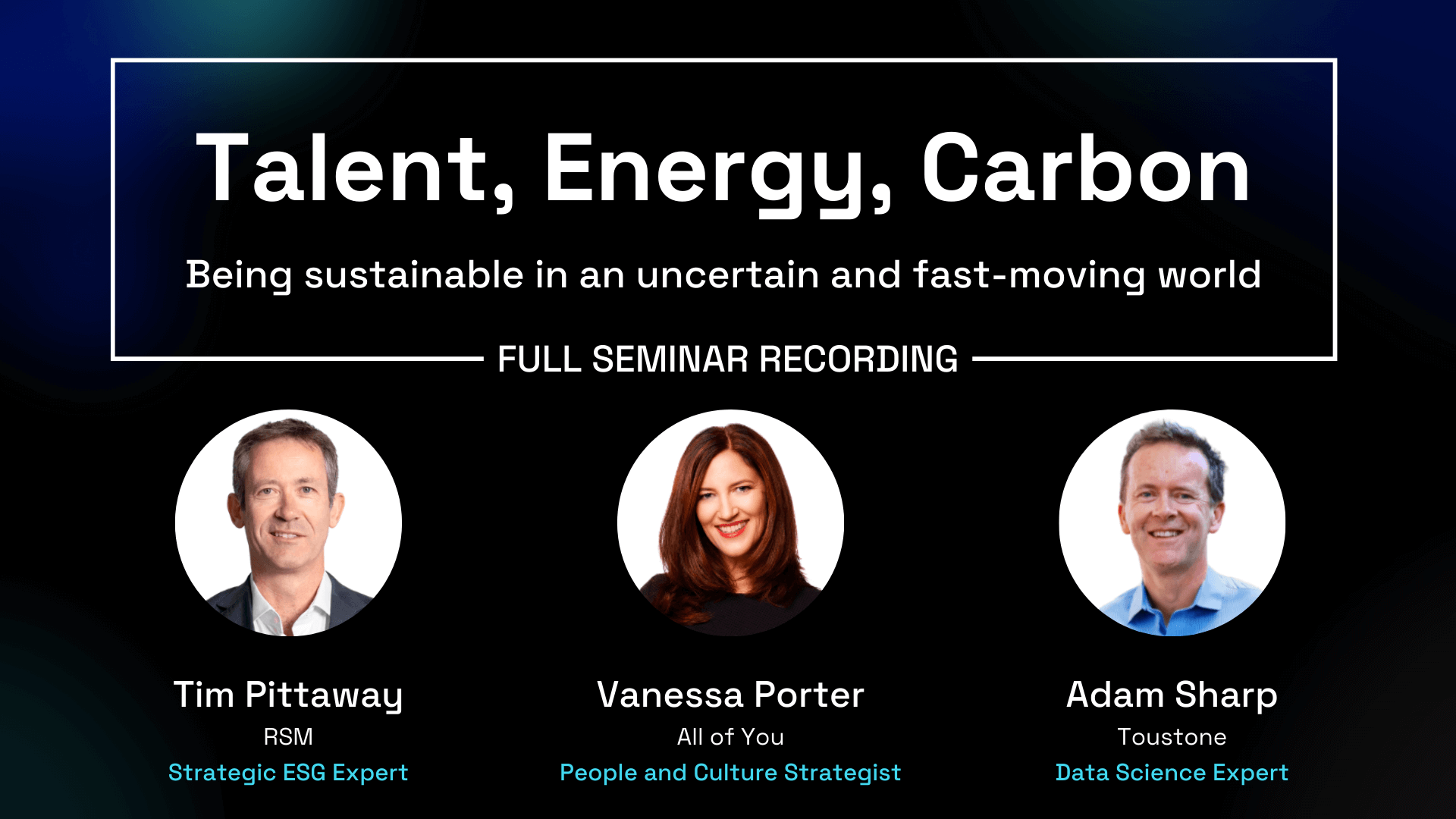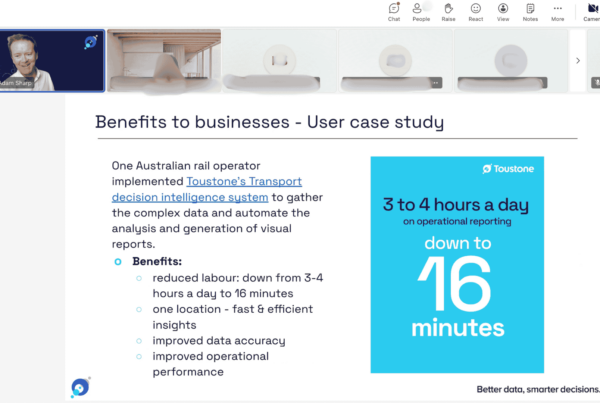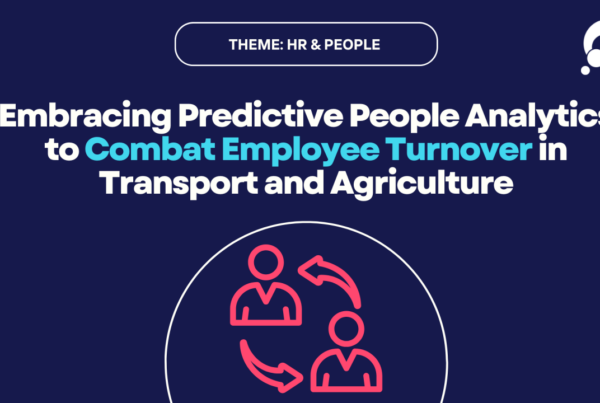ESG reporting has become super important for Australian companies to attract investors and show their long-term sustainability. Australia’s new sustainability standards will soon be mandatory, so being open and honest in reporting will be even more crucial. To help ease peoples minds, we brought together an expert panel that highlighted different, but aligned, perspectives on what practical things Australian leaders and businesses can do right now to future proof their ESG strategy.
ESG Speakers and Panellists:
- Vanessa Porter – Managing Director, All of You
- Tim Pittaway – Partner, RSM
- Adam Sharp – Co-founder and Service Delivery Director, Toustone
- Craig Lefoe – Co-founder and CEO, Toustone
- Aayushi Vyas – Data Scientist, Toustone
“These ambitious standards will require companies to adopt a systematic approach to collecting and analysing data across the company itself, and its supply chains. Preparation for that should be starting now”
Joe Longo, Chair, ASCI
Do we actually have the data? A case for establishing ESG Benchmarks
(45:13)
We learned that ESG reporting isn’t a new thing. It’s all about understanding what needs to be reported and shared with the public. According to Tim Pittaway, Partner at RSM, there are different frameworks like GRI and SSB for ESG and sustainability reporting, each with its own approach. Tim stressed the importance of agreeing on a framework upfront to overcome barriers and make reporting more comparable across organisations. He also mentioned that upcoming sustainability reporting standards aim to improve comparability and bring more consistency.
From a data analytics perspective, a common question pops up: “Do we actually have the data?” Well, most of the time, the answer is yes, but it’s scattered across multiple systems or duplicated in various places, creating multiple versions of the truth. Adam Sharp highlighted the challenge of data access but recommended starting somewhere, drawing a line in the sand, and then evolving. “Once we have the data, we can work wonders with it—ingest, model, and do everything needed.”
“It just makes good business sense to be able to measure the financial, social and governance impact.”
Tim Pittaway, Partner, RSM

Improving ESG performance, one step at a time (43:22)
Improving ESG performance requires a data-driven approach. During the seminar, Tim Pittaway emphasised the significance of data in this context, stating,
“Data is a big part of that. So looking at the data sources, the systems and processes around the data that you’ve got for each of the ESG components and understanding what are the key risks, and expectations of stakeholders.”
Tim Pittaway, Partner, RSM
Tim explains that to kickstart this process, companies need to assess their current state across each ESG dimension. This involves a thorough examination of data sources, systems, and processes related to ESG practices. By understanding the existing data landscape, organisations can identify key risks and gain insights into stakeholder expectations.
Once armed with this information, companies can develop a strategy to consolidate and analyse the relevant data. Bringing together the right stakeholders and resources, organisations can begin building an ESG performance report that accurately reflects their sustainability efforts.
However, the journey doesn’t end there. It is essential to obtain assurance from stakeholders to instill confidence in the reporting and ensure alignment with their expectations. This collaborative approach fosters transparency and accountability in ESG reporting.
To streamline the reporting process and ensure accuracy, companies must prioritise data management and automation. Integrating data from various sources and implementing automated data collection processes can minimise errors and inconsistencies. This leads to the creation of a reliable and unified source of truth for sustainability reporting.

Employee surveys are not all it’s cracked up to be (24:50)
Employee surveys play a crucial role in gathering feedback, but during the seminar, the challenge of survey fatigue and delayed action was highlighted. Vanessa Porter, Managing Director of All of You, expressed concerns about employees experiencing fatigue due to frequent surveys and the subsequent delay in taking meaningful action based on the survey results.
Vanessa emphasised the importance of timely action to address workplace issues identified through surveys. Waiting too long to act on feedback can lead to frustration among employees and hinder the overall improvement process.
“This is why I like RetainTalent. It allows targeted interventions and real-time monitoring, enabling organisations to pinpoint where improvements are needed. The best part is that you can see the changes within a day, a week, or a month, making it easier to tweak and adapt strategies accordingly.”
Vanessa Porter, Managing Director, All of You
Building on this discussion, Craig Lefoe further highlighted the potential of existing data within organisations. He explained that through data analysis, companies can gain valuable insights into employee behaviour and identify early indicators of turnover without solely relying on regular surveys. By harnessing the power of existing data, organisations can proactively address workplace issues and make meaningful changes for the betterment of their workforce.

Quick Recap
To recap, the ESG Leader Seminar highlighted important insights and key takeaways:
- ESG reporting is now crucial for companies to attract investors and showcase their long-term sustainability practices.
- The upcoming sustainability standards in Australia will make transparent and accurate reporting essential!
- Establishing ESG benchmarks means agreeing on a framework, drawing a line in the sand and starting actions.
- Standardising ESG reporting frameworks helps overcome barriers and promotes comparability across organisations.
- Data analytics plays a significant role in improving ESG performance by leveraging existing data sources and streamlining reporting processes.
- Addressing survey fatigue is vital for effective employee feedback, and data analytics provides valuable insights for driving positive changes in the workplace.
Although this was an invite-only event, we would hate for you to miss out on the full experience! Click here to watch the full recording




